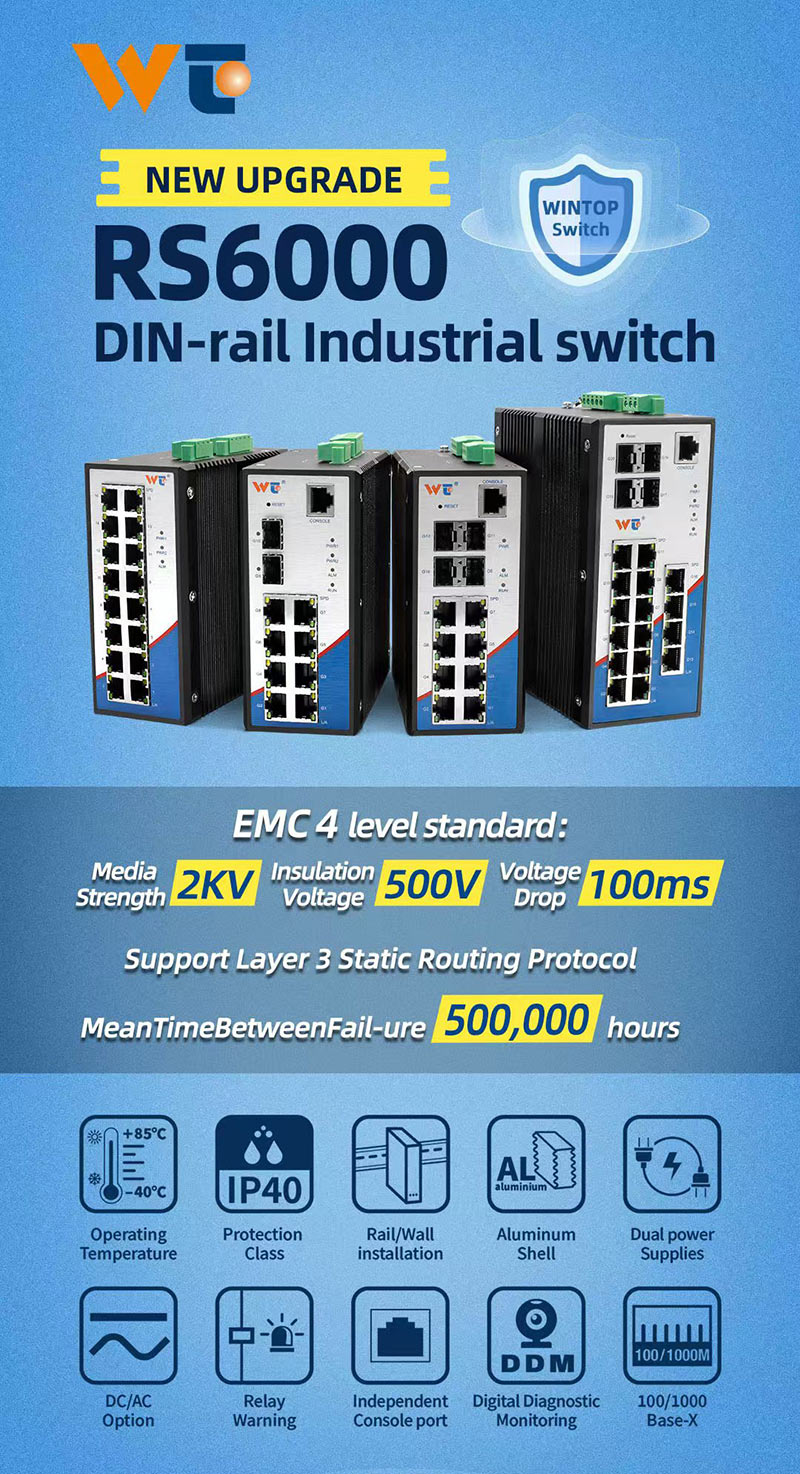Applications of Industrial Switches in Security Checkpoint Systems
Imagine a bustling airport at peak hours. Passengers from all walks of life, each with a unique destination, converge at a single point - the security checkpoint. The efficiency, safety, and smooth operation of this critical juncture depend heavily on an unsung hero: the industrial switch.
Unveiling the Heart of Security Checkpoints
At first glance, industrial switches might seem like mere technical components, but in reality, they are the backbone of advanced security systems. These switches ensure that every piece of equipment, from X-ray machines to metal detectors and biometric scanners, operates in perfect harmony. They are the silent sentinels that guard against system failures, ensuring a seamless flow of passengers through security.
The Complexity and Challenges
The complexity of modern security systems is staggering. Each checkpoint is a symphony of interconnected devices, all relying on real-time data to detect potential threats. Industrial switches play a crucial role here, managing the data flow and ensuring that every device communicates effectively.
Consider the challenges: high data volumes, the need for rapid processing, and the requirement for fault tolerance. Traditional switches simply can't handle these demands. They might falter under the pressure, leading to delays, false alarms, or worse, security breaches. This is where industrial switches shine. Designed for robustness and reliability, they can withstand the harshest environments and the most demanding workloads.
Industrial Switches: The Unseen Guardians
Industrial switches are engineered to endure. They are built with rugged materials, capable of withstanding extreme temperatures, humidity, and even physical shocks. This durability ensures that they remain operational in the busiest and most challenging environments, such as airports, train stations, and large public events.
But it's not just about durability. Industrial switches are also designed for high performance. They offer low latency, high throughput, and exceptional fault tolerance. This means that even if one part of the network fails, the system can continue to operate smoothly, with minimal disruption. This resilience is critical in security checkpoint systems, where any downtime can lead to long queues, frustrated passengers, and potential security risks.
Real-World Applications
Let's delve into some real-world applications to understand the impact of industrial switches better:
- Airports: At airports, industrial switches manage the complex network of X-ray machines, metal detectors, and biometric scanners. They ensure that data from these devices is processed quickly and accurately, enabling security personnel to detect potential threats swiftly. The rugged design of these switches means they can operate reliably in the varied conditions found in different parts of the airport.
- Train Stations: Train stations, especially in major cities, handle thousands of passengers daily. Industrial switches ensure that security systems, such as surveillance cameras and access control systems, work seamlessly together. This coordination is vital for maintaining safety and preventing unauthorized access.
- Public Events: Large public events, like concerts and sports games, present unique security challenges. Industrial switches facilitate the integration of various security technologies, from crowd monitoring systems to emergency response mechanisms. This integration helps security teams to respond quickly and effectively to any incidents.
The Advantages Over Traditional Switches
When comparing industrial switches to traditional ones, the differences are stark. Traditional switches are not designed to handle the rigorous demands of security checkpoint systems. They may struggle with high data volumes and are often less reliable in harsh conditions.
In contrast, industrial switches offer:
- Enhanced Reliability: Built to last, they can operate in extreme conditions without compromising performance.
- Superior Performance: With low latency and high throughput, they ensure that security systems process data quickly and accurately.
- Robust Fault Tolerance: They can handle failures gracefully, ensuring that the overall system remains operational.
Emotional Resonance: The Human Element
Beyond the technical aspects, there is a human element to consider. Security checkpoints are often stressful for passengers. The efficiency and reliability of these systems can significantly impact their experience. Industrial switches, though unseen, play a crucial role in reducing wait times, minimizing false alarms, and ensuring a smooth and safe passage.
Imagine a mother traveling with her children, anxious about catching her flight. A swift and seamless security check can alleviate her stress, making her journey more pleasant. This is the emotional resonance of industrial switches – they contribute to a better travel experience, one passenger at a time.
The Future of Security Checkpoints
As technology advances, the role of industrial switches in security checkpoint systems will become even more critical. With the advent of AI and machine learning, these switches will support even more sophisticated security measures, from predictive threat detection to real-time data analytics.
Conclusion: The Unsung Heroes
In conclusion, industrial switches are the unsung heroes of security checkpoint systems. They ensure that our security infrastructure operates reliably and efficiently, safeguarding both public safety and the smooth operation of critical services. Their robustness, performance, and fault tolerance make them indispensable in today's security landscape.
So, the next time you breeze through a security checkpoint, remember the silent sentinels at work. Industrial switches are not just components; they are the guardians of our safety and the enablers of our journeys. In a world where security is paramount, they stand as a testament to human ingenuity and resilience.
Final Thought
As we embrace the future, let us not forget the humble industrial switch. It might be a small component, but its impact is profound. In the world of security checkpoint systems, it is a cornerstone of safety and efficiency, ensuring that we can travel with peace of mind.
